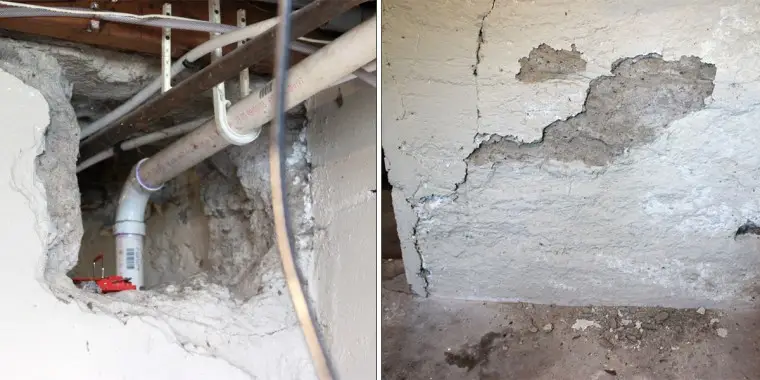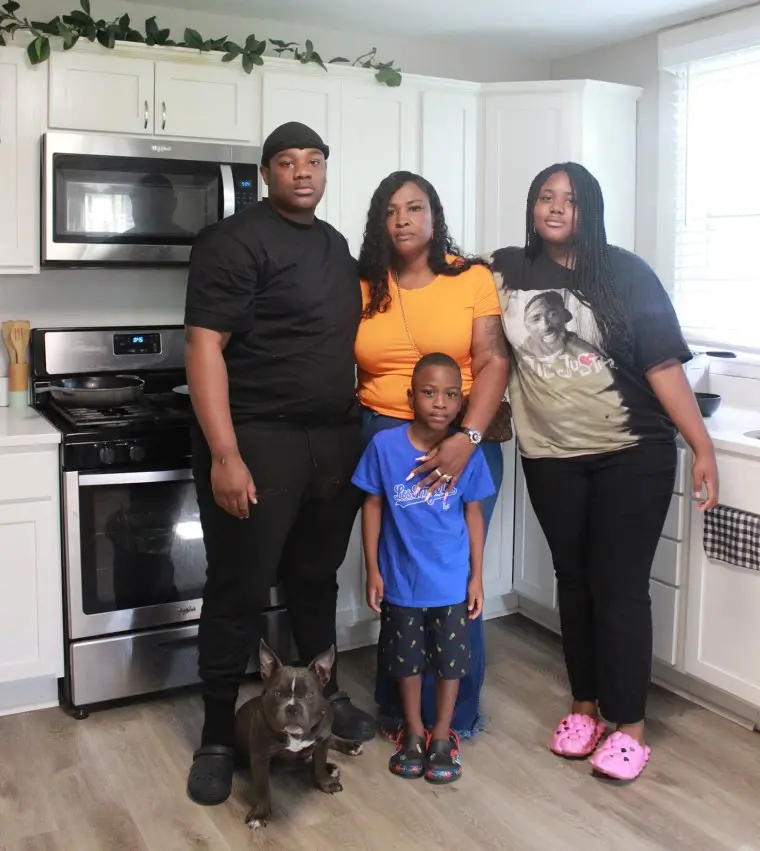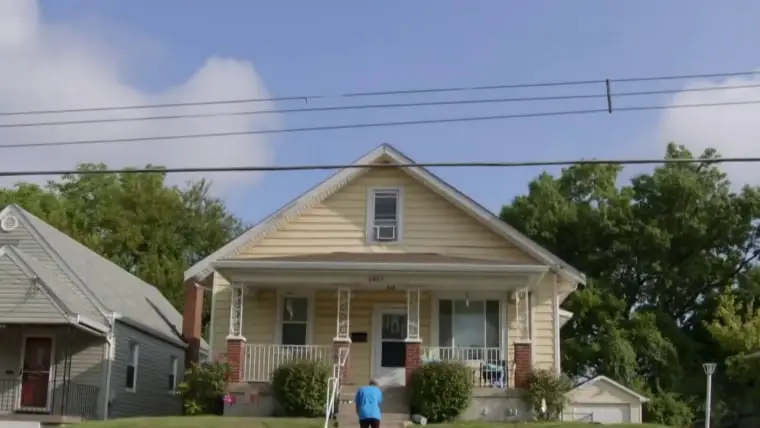
These renters fought one of America's largest corporate landlords — and scored some wins
MINNEAPOLIS — A group of North Minneapolis tenants has won rent freezes, refunds and other concessions from their private-equity-backed landlord, showing that protests, pickets and organizing can gain results even against a powerful corporate giant.
The group, United Renters for Justice, is battling Progress Residential, the largest provider of single-family homes for rent in the U.S. The private-equity-backed Progress and its affiliated companies have purchased almost 90,000 properties across the country in recent years, focusing on fast-growing metropolitan areas, including Austin, Texas; Denver; Salt Lake City; and Tampa, Florida, its website shows. Progress, which also acts as a property manager, is backed by Pretium Partners, a private-equity firm overseen by Don Mullen, a former Goldman Sachs executive.
Progress tenants in North Minneapolis, a predominantly Black neighborhood, say many of the company’s rental homes are badly maintained, with black mold, pest infestations, broken windows, cracked foundations and insufficient heat in winter. Even so, Progress has raised rents, the tenants said.
“Our back door is not secure, our front door is not secure,” said Jimari Brown, a Progress renter in North Minneapolis. The basement walls are crumbling, Brown said, and her home is infested with vermin. “Conditions have been bad and we’ve just been getting by, doing what we’ve got to do because they don’t come” to make repairs. She’d move if she could find an affordable place, Brown added.

Progress began operating in Minnesota in 2014, its website says, and currently rents out 644 homes in the state. The company is much larger in southern states like Florida, with almost 18,000 homes, and Georgia, with over 15,000 homes. In Arizona, Progress has some 8,000 single-family homes.
A congressional report last year cited Progress as one of four corporate landlords that evicted thousands of tenants during the pandemic in spite of a moratorium created by the Centers for Disease Control and Prevention to help curtail the spread of Covid.
Pretium Partners declined to comment through a spokeswoman.
A Progress spokeswoman said in a statement: “We have one of the strongest rent relief programs in the industry, providing millions of dollars in assistance to keep residents in their homes. We work actively to support our residents in need and offer multiple payment plans and other rental assistance programs.”
The spokeswoman declined to comment on the tenants’ complaints about the conditions of their homes or about photos of the homes provided by NBC News.
Minnesota’s attorney general, Keith Ellison, sued Progress and an affiliate, HavenBrook Homes, last year, alleging that HavenBrook failed to repair its properties and told tenants they had to leave their homes during Covid, violating the law. “In pursuit of a deliberate strategy to extract profits from the Minnesota households they rent to, HavenBrook has severely and systematically understaffed and under-resourced the upkeep of its properties,” the AG said in a statement when the lawsuit was filed. HavenBrook is controlled by Pretium through shell companies, the attorney general said.

The companies have denied the allegations and moved unsuccessfully to dismiss the case, which is in the discovery stage. Pretium is fighting being named as a defendant in the case, maintaining that it is simply a passive investor in the company. A judge is expected to rule on that element this year.
“Owners and operators, all of them, are responsible and they will be held responsible,” Ellison said in an interview. “It’s not going to be good enough to say, ‘I just own the place and get the profits from it. I don’t operate it.’”
For a decade, Shanika Henderson has been a tenant of the company that is now known as Progress. At first, her landlord was accommodating, she said, but later she endured insufficient heat in the winter, and said that repairs to her home, like fixing a cracked foundation, were not made. When a tenant organizer approached her about joining the group effort to fight her landlord, she listened.
“I was very moved about the work they were doing and about being involved in something I didn’t think was possible,” Henderson said. “They said, ‘Come with us and door knock,’ and I did. I got to know tenants even on my block I didn’t know.”

Along with getting the word out to Progress tenants about the advocacy group’s activities and enlisting them as members, United Renters for Justice has picketed in front of the company’s local offices, encouraged residents to call 311 with complaints, advised tenants how to pay their rent to the court if repairs were not made and asked to meet with Progress executives. So far, the company has declined the meeting request.
The Progress spokeswoman said in a statement, “Progress Residential regularly engages with our residents and with community representatives who operate in good faith.”
Since the protests against Progress began, the group has also won rent-to-own options for its tenants, and when a tenant must relocate while a property is being repaired, the landlord has agreed to pay moving costs. Henderson was among the tenants Progress moved to renovated homes following the renters’ campaign.
Brown, the other Progress tenant, told NBC News she believes the only reason her landlord has begun addressing some of her complaints is because of the work of United Renters for Justice. “We were able to get our AC fixed, our furnace redone, some window treatments,” she said. “But they still have a long way to go.”
Progress’s operations in Minneapolis have been lucrative, according to a new report by the Private Equity Stakeholder Project, an advocacy group that monitors private-equity firms’ impact on consumers of goods and services. The report says that the company’s purchases of these modest homes have prevented first-time and lower-income homebuyers from being able to buy them. Now that the North Minneapolis properties purchased by Progress and affiliates have more than doubled in value, the report said, wealth creation that could have benefited residents in the neighborhood instead went to the wealthy firm.
“Renting a home is a value proposition to renters, neighborhoods and the families who choose to be in a house when renting is right for them,” the Progress spokeswoman said in response to the report. “Since 2021, many millions have been invested in the properties we manage in Minnesota including investments in staff who live and work in the state.”
The Progress tenants have also garnered the attention of Minneapolis city officials who required the company to change aspects of its operations. For example, the city required emergency repairs to be done on Progress properties within 24 hours and barred retaliation against tenants for demanding repairs. In addition, utilities must be billed in a renter’s name, not the landlord’s, so the tenant can apply for energy assistance payment programs, city documents show.
Columbia Heights, a first-ring Minneapolis suburb about 5 miles north of the city, has also pressured Progress after fielding tenants’ complaints. Last year, it revoked the rental license for HavenBrook Homes, the Progress affiliate, after an investigation into the company’s properties found numerous uncorrected building and safety code violations. They included missing or broken carbon monoxide and smoke detectors, combustible material stored under basement stairs, mold, broken windows and leaking plumbing — violations that the city said put renters’ lives at risk.
The mayor of Columbia Heights, Amada Marquez Simula, characterized the landlord as “predatory” in an interview.
“Everyone should be able to live in dignified, safe housing,” Marquez Simula told NBC News, “and if landlords aren’t providing that, the only way cities have to enforce that safety is landlords losing that license.”
Marquez Simula says Columbia Heights is also investigating other corporate landlords with a large volume of property violations and significant rent increases to see if the city should revoke their licenses as well.
As for Progress, its spokeswoman said none of its rent hikes have exceeded 10% and the increases have averaged less than 5% across Minnesota in 2022 and 2023. Still, even small rent increases can hit lower-income tenants in Minneapolis especially hard. An April “Rent Stabilization Staff Analysis” by the city found that rents rose by 44% from 2006 to 2019 for the bottom quartile of Minneapolis renters, while their incomes grew by only 2.9%.
Ellison, the Minnesota attorney general since 2019, made a campaign issue out of protecting tenants. Landlord/tenant issues had not been the traditional domain for the attorney general, his spokesman said, but as more and more of the state’s housing stock was bought up by large corporate landlords like Pretium, the attorney general’s office ratcheted up the scrutiny. It now has a program with dedicated staff and budget to crack down on alleged violators.
“We’d rather have companies just go with what the law demands of them,” Ellison said. “But we will sue when we need to. And we want people to know about what we’re doing because we want folks to call us when there are unfair things happening.”







